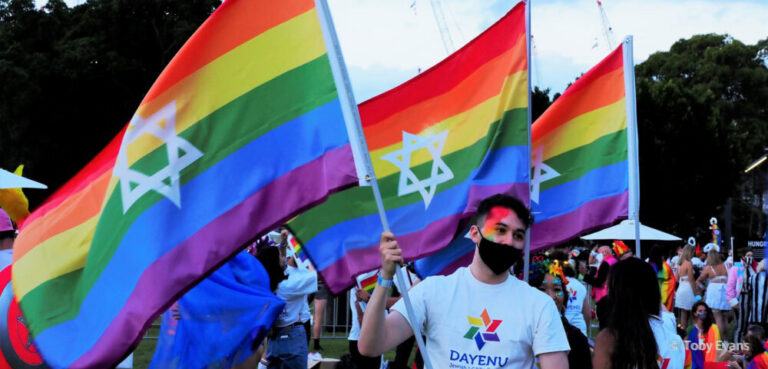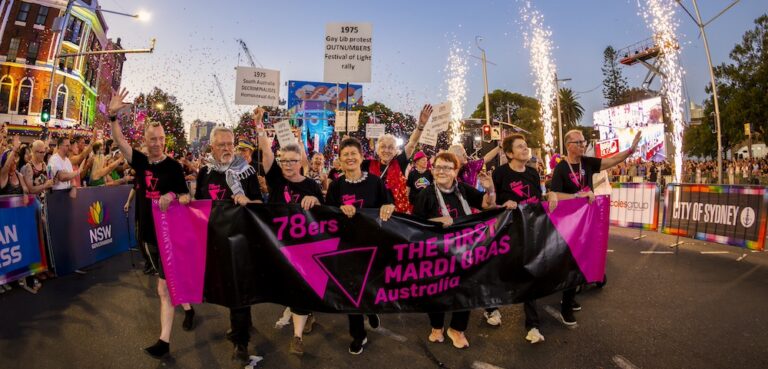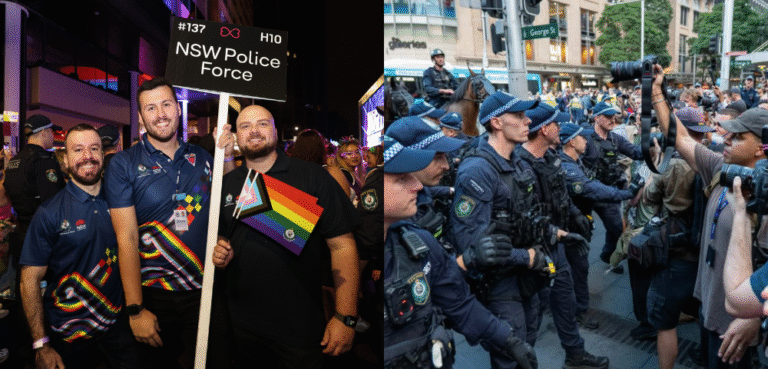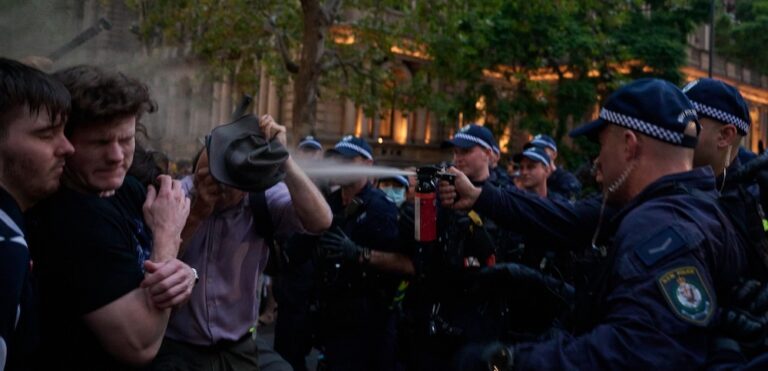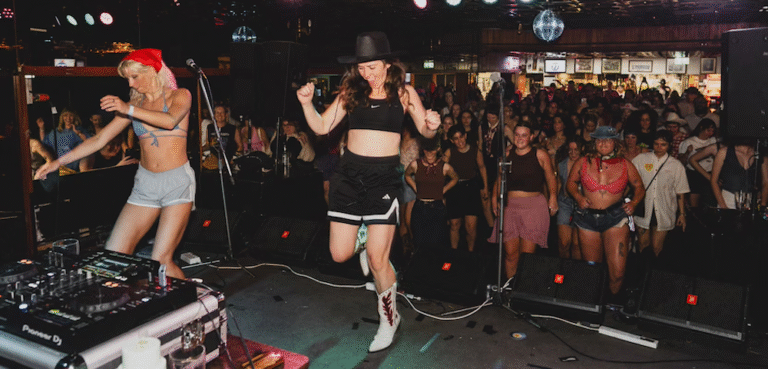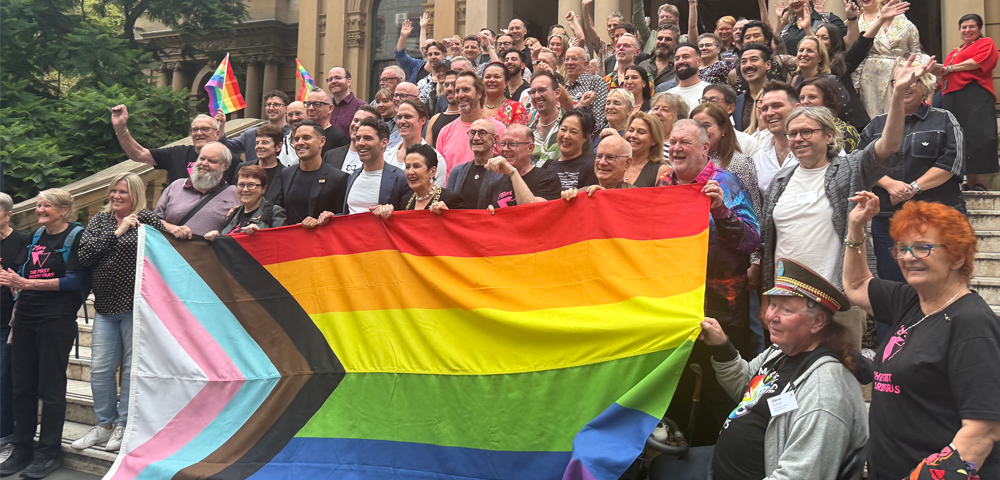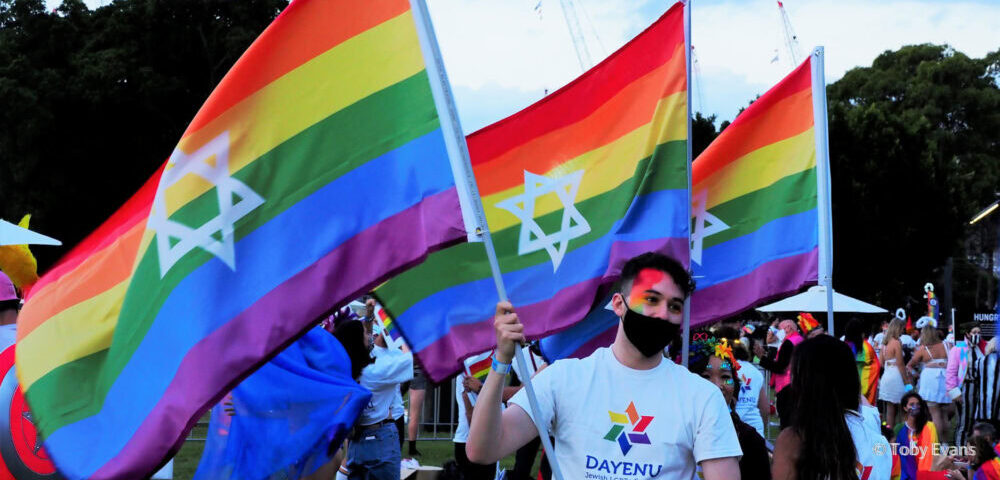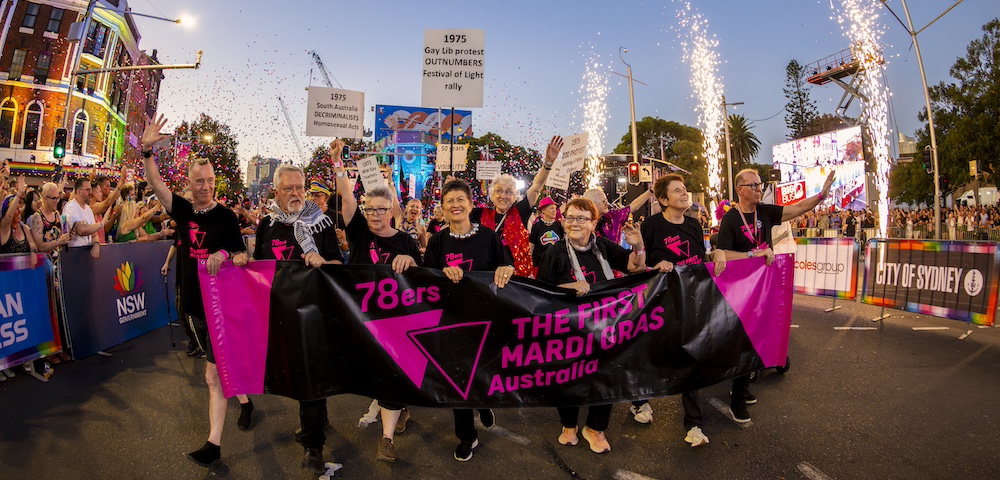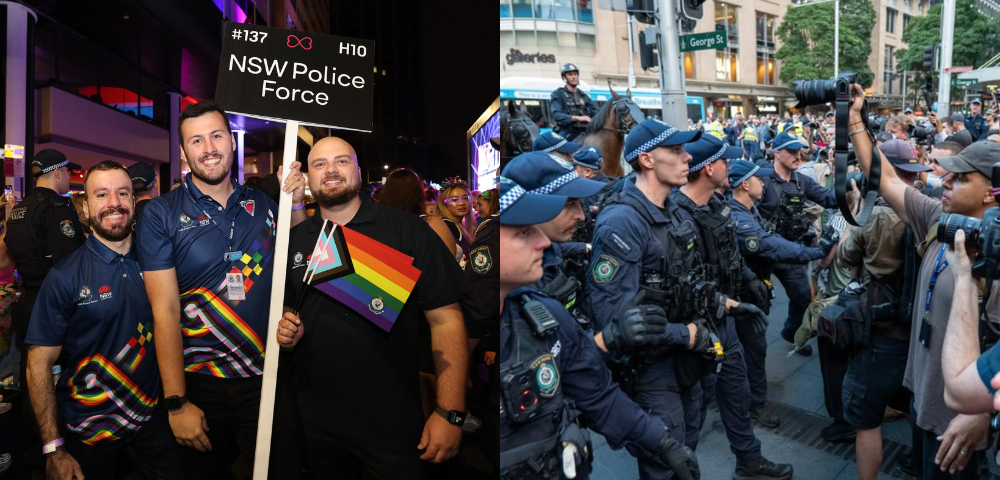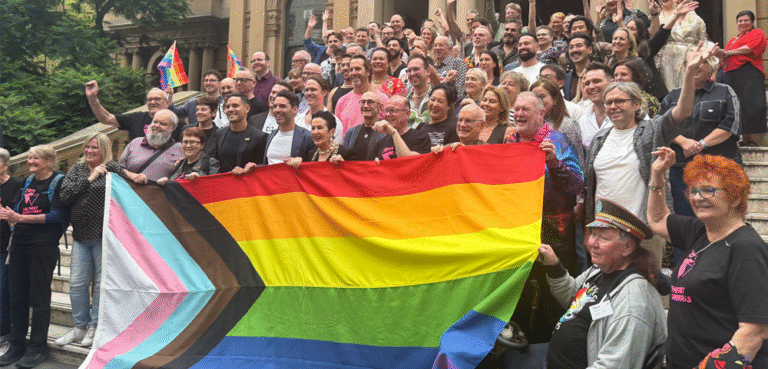
Age-old questions
When Joe* found out he was HIV-positive earlier this year after a casual sex partner’s condom slipped off, he had to deal with more than the shock of his diagnosis.
As a 40-year-old gay man who had been careful about safe sex for years, he found his friends’ attitudes were just as confronting.
The stigma of actually telling people in this day and age that I’ve seroconverted now, that was the hardest thing I had to do, Joe says.
One friend, when I told him that I’d seroconverted, got up and left the room and didn’t come back and talk to me for two weeks.
And another person said to me, -˜You should have known better.’
Then there was the seeming scarcity of support services tailored to older men.
ACON’s counselling service was booked up at the time, Joe says, and he wasn’t comfortable being referred to a local sexual health centre because he knew someone working there.
Eventually Joe went to ACON’s Positive Living Centre, through which he attended a Genesis workshop for recently diagnosed HIV-positive men last weekend.
Meeting other HIV-positive men and sharing experiences was enormously helpful, Joe says.
But his earlier experiences underscore the need for targeted prevention and support services for older gay men, as HIV notification rates rise among gay men aged 40-49 in particular.
Recent data from the National Centre in HIV Epidemiology and Clinical Research (NCHECR) show new diagnoses among men aged 40-49 increased by about 14 percent nationally from 2004 to 2005.
In the same period new diagnoses among men between 50 and 59 rose by around 25 percent, and in the 60+ age group they increased by about 41 percent, although these rises are relative.
Men aged 50-59 accounted for 101 new HIV infections in 2005, according to the NCHECR figures, while the 60+ age group recorded only 41 diagnoses.
This contrasts with men aged between 30 and 39, with 314 new HIV diagnoses last year -“ the largest of all age groups -“ and the 40-49 age group with 215.
But the NCHECR data reflect recent figures from NSW showing a rising average age of HIV infection and slightly higher infection rates among men in their 40s.
And Victoria reported higher rates of HIV among men aged between 35 and 45 when it announced a 28 percent jump in new HIV infections for 2005.
The average age [of HIV transmission] is about 37 and over the last four or five years it’s gradually moved up from 35 to 37, ACON chief executive Stevie Clayton says.
We’ve got a number of guesses about why the average age is increasing, and I guess the one that seems to be the strongest guess relates to the average age of HIV-positive people in Australia being 44.
People most often have sex with people around the same age as them. So we’re talking about in that [40+] age group, a bigger pool of people who are positive.
Therefore when you have sex with someone, and if you happen to have unsafe sex, there’s more chance it’s going to be with someone who’s HIV-positive.
Anecdotal evidence suggests there are different reasons for infections among older gay men than for the slight increase seen recently in men aged in their early 20s, Clayton says.
The sort of things that we’re hearing is that in that [older] age group there are older gay men who’ve been in long-term relationships and their partner has died or the relationship has broken down.
They simply don’t know how to negotiate condom use because it hasn’t been something they’ve had to do for a long time.
Also the obsession in our community with youth and beauty and, as men are getting older, thinking that no one’s going to find them attractive, it’s difficult to find a sexual partner, and therefore they’re willing to accommodate that other person.
So if the other person really doesn’t want to use a condom, then they’re not going to argue because they’re more worried about being rejected.
But Clayton questions the notion of older gay men experiencing safe-sex fatigue after years of hearing HIV prevention messages.
Certainly what we see much more is people who feel unable to negotiate condoms rather than they just can’t be bothered any more.
Steve Ostrow, the founder of support group Mature Age Gays, agrees social isolation can play a part in HIV transmission among older men.
If you get a guy who’s 60 or 70 and he figures, what the hell, the average life expectancy is 72 so I’ve got 12 years to live no matter what happens, and some young guy comes over -¦ and wants to have sex with him, it’s like Christmas and so he’s not going to protect himself, Ostrow says.
As gay men grow older, they might also be more willing to engage in more adventurous -“ and sometimes riskier -“ sex practices, according to NCHECR lecturer Dr Garrett Prestage.
They become more comfortable about expressing their sexuality -¦ probably in at least their late 20s but probably more likely in their 30s, Prestage says.
One of the primary factors for men seroconverting is men who are playing hard and heavy in more adventurous scenes.
Men who are doing that are at increased risk -¦ they’re playing more, they’re taking risks more and probably more of the men that they’re playing with are either positive or recently seroconverted.
Prestage, an investigator on several major community sexual health studies, also rejects the idea of safe-sex complacency among older gay men.
I don’t see in the data where they’re just becoming completely blas?nd not giving a damn about it, he says.
What I see is that they’re making lots of different choices about how to minimise their risk, like a negative man being the top still has a risk, but they’re seeing it as a different way of reducing the risk.
Prestage says the challenge is empowering older gay men about HIV.
I don’t think it’s about awareness, and in fact I think taking that tack would put these men off.
If they get addressed as if they don’t know, then they’ll switch off because they do know.
It’s more about taking leadership. To some extent what we really need is to have men within those scenes taking some of the leadership and taking some of the control and saying, -˜This is the way we have to go forward.’
As part of a planned campaign targeting older gay men, ACON is investigating using mainstream publications rather than community sources to get the message out.
Lots of older gay men simply don’t use those [community] networks, don’t read those publications, don’t go to those sorts of venues, and so we have to find new ways of getting to them, Stevie Clayton says.
But Joe thinks the answer lies in more personalised support like the Genesis workshop or a mentor program pairing HIV-positive people with newly infected buddies of a similar age.
My first feelings [after the diagnosis] were I need to speak to a positive person, not to one of my friends who’s going to tap me on the shoulder and say, -˜Mate, you’re going to be okay,’ Joe says.
I wanted to speak to someone who had walked the walk and somebody who was prepared to go to the doctor with me or sit with me or go to a movie.
I would volunteer to be trained as one of those people because I feel that would have really helped me a lot.
*not his real name
For more information about Genesis workshops and other support programs call the Positive Living Centre on 9699 8756 or ACON on 9206 2000.
